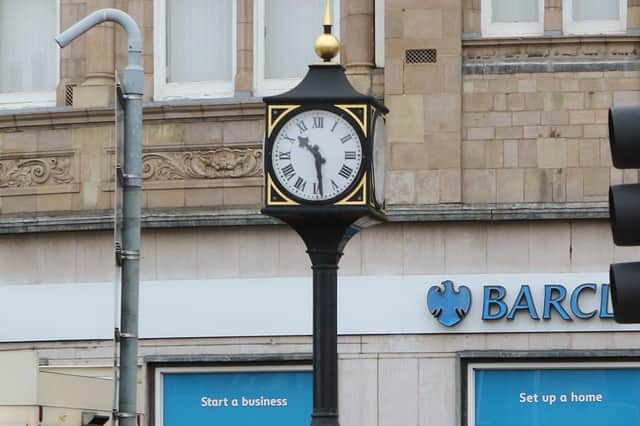When do the clocks change and go back in October 2021?


The Government says: “In the UK, the clocks go forward one hour at 1am on the last Sunday in March, and back one hour at 2am on the last Sunday in October.
“The period when the clocks are one hour ahead is called British Summer Time, or BST. There is more daylight in the evenings and less in the mornings – sometimes called Daylight Saving Time.
Advertisement
Hide AdAdvertisement
Hide Ad“When the clocks go back, the UK is on Greenwich Mean Time, or GMT.”
This means that this year, the clocks will go back one hour on Halloween, Sunday, October 31, at 2am.
Next year, the clocks will go forward, to BST, on Sunday, March 27, at 1am, and back, to GMT, on Sunday, October 30, at 2am.
A handy trick to remember whether clocks go back or forward is ‘spring forward, fall back’, in that clocks ‘spring’ forward into spring, in March, and fall back to autumn – known as fall in the US – in October.
What is the history of changing the clocks?
Advertisement
Hide AdAdvertisement
Hide AdPutting the clocks forward in spring means lighter nights for commuters coming home and more sun in the evening.
A campaign at the beginning of the 20th century successfully argued in favour of changing the clocks during the summer months to avoid wasting time in the morning.
Builder William Willett, who drove the campaign, wanted lighter evenings, suggesting it would increase daylight recreation time and also save millions of pounds in lighting costs.
It became law through the Summer Time Act 1916.
Why do the clocks still change?
Today, people argue changing the clocks is good as the lighter evenings in summer help reduce energy consumption and road accidents, as well as help to promote leisure and tourism and a healthier lifestyle with more time to exercise outdoors.
Advertisement
Hide AdAdvertisement
Hide AdIndeed, there are repeated calls to move Britain’s clocks a further hour forward – essentially keeping British Summer Time through winter and having a ‘double summertime’, of two hours ahead of GMT in the summer months.
It would mean the UK adopting the same Central European time zone as countries such as France, Germany, and mainland Spain.
RoSPA, the Royal Society for the Prevention of Accidents, has suggested this would cut the number of accidents over this period as a result of the lighter evenings, while environmental campaigners have suggested it could save thousands of tonnes of carbon dioxide each year, with reduced energy usage due to less lights needed.
However, some farmers and outdoor workers, particularly those in Scotland, oppose the idea as it would mean winter sunrises could be as late as 10am.
Will I need to change my clocks, such as on my mobile phone?
Advertisement
Hide AdAdvertisement
Hide AdSmartphones, computers and other digital devices should update automatically – but check you have automatic updates enabled – but older analogue clocks need changing manually.
Support your Chad by becoming a digital subscriber. You will see 70 per cent fewer ads on stories, meaning faster load times and an overall enhanced user experience. Click here to subscribe.